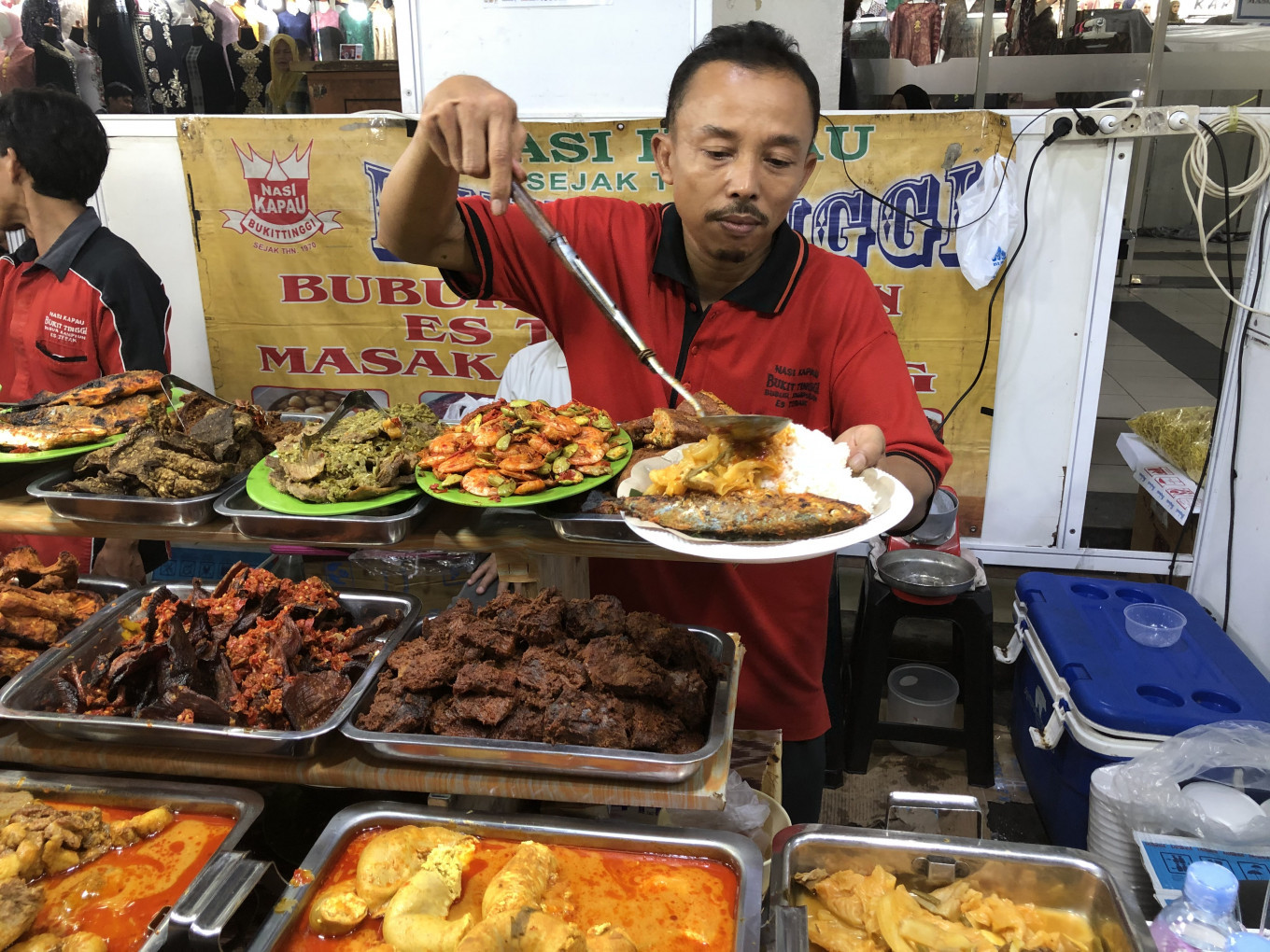Popular Reads
Top Results
Can't find what you're looking for?
View all search resultsPopular Reads
Top Results
Can't find what you're looking for?
View all search resultsMinistry prepares regulation on small businesses to implement jobs law
The Cooperatives and Small and Medium Enterprises Ministry is working on the details of a draft government regulation on small businesses as a follow-up to the recently passed Job Creation Law.
Change text size
Gift Premium Articles
to Anyone
T
he Cooperatives and Small and Medium Enterprises (SMEs) Ministry is working on the details of a draft government regulation (RPP) on small businesses as a follow-up to the recently passed Job Creation Law.
Ten issues related to small businesses from the jobs law will be further detailed in the government regulation, according to the ministry, including cooperatives’ business activities, sharia-compliant cooperatives, micro, small and medium enterprises (MSMEs), business licensing and integrated MSME management.
“Our target is to finish the RPP by November,” Cooperatives and SMEs Minister Teten Masduki said in a virtual press conference on Thursday. “We have set the timeline and we will involve 10 stakeholders to work on this RPP.”
The draft government regulation is expected to also detail issues over the relaxation of registration requirements, financing, intellectual property, exports and raw and auxiliary material imports for small businesses. Moreover, it is expected to cover regulations on MSME development through public procurement.
The President Joko “Jokowi” Widodo administration aims for the recently passed omnibus law to cut red tape and attract more investment in the country by simplifying business permits and reforming labor regulations.
It is now preparing a regulation to implement the law, despite widespread opposition from labor unions, environmental groups and students over labor and environmental issues.
Read also: Govt defends jobs law despite opposition
For MSMEs, the omnibus law is expected to solve common issues like access to financing and licensing, according to Teten.
Small businesses, which contribute more than 60 percent to the Indonesian economy, have been hit hard by the COVID-19 pandemic.
Around 60 percent of Indonesian small businesses might have to shut down in six months due to pandemic restrictions, according to a survey of 147 small businesses between June and July by the United Nations Industrial Development Organization (UNIDO).
Teten said draft discussions would involve consultations with experts, business incubators, universities, businesses and associations of MSMEs and cooperatives.
“We plan to issue only one PP that regulates everything,” Teten added.
According to Article 93 of the latest draft, small businesses will be able to use their business assets as collateral to obtain loans.
Teten said that MSMEs often fell short in providing the collateral required to obtain working capital or investment from banks.
“MSMEs on average do not have assets. Their place is usually not strategic and their means of production are usually modest machineries,” he said.
According to Article 91 of the omnibus law, small businesses can also get leeway in accessing a business registration number (NIB) online, depending on the risk of the business.
The business registration number aims to integrate business permits, the Indonesian National Standards (SNI) and halal certification. The minister claimed that it would also cover distribution permits from the Food and Drug Monitoring Agency (BPOM).
However, if the business poses medium to high risks on health, safety or the environment, small businesses will also need to obtain a standard certification or permit.
With the omnibus bill, the ministry will also run an annual update of a single database on MSMEs, which it plans to use in the government’s decision-making process, according to the ministry’s secretary, Rully Indrawan.
“We have proposed this since the start of preparations for the 2021 [state budget] for that matter,” said Rully. “The [House of Representatives] also supports the presence of a better database.”
The secretary added that the ministry was planning to offer an export-oriented customs incentive for small businesses.
Ikhsan Ingratubun, chairman of the MSMEs Association (Akumindo), welcomed the jobs law, saying that the relaxation of requirements on licensing, free halal certification and partnerships with bigger enterprises was in line with the interests of small businesses.
However, the association is still waiting for further details on whether it will be easier to obtain a distribution permit.
"The distribution permit [process] can’t be similar to that of big companies. There must be an affirmative policy," Ikhsan told The Jakarta Post in a phone interview on Friday.
Meanwhile, Center for Indonesian Policy Studies (CIPS) researcher Siti Alifah Dina stated that there should be clarity on the articles that could potentially have multiple interpretations.
“The clarity is needed for development programs and aid for each business unit, in accordance with its scale and sector,” a CIPS statement published on Thursday reads.










